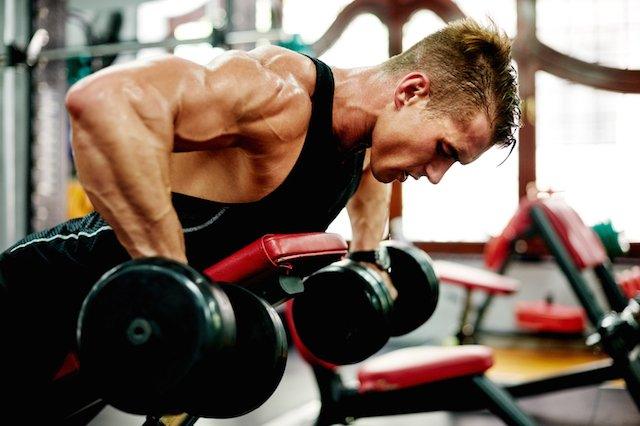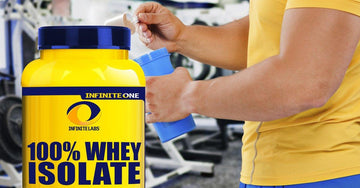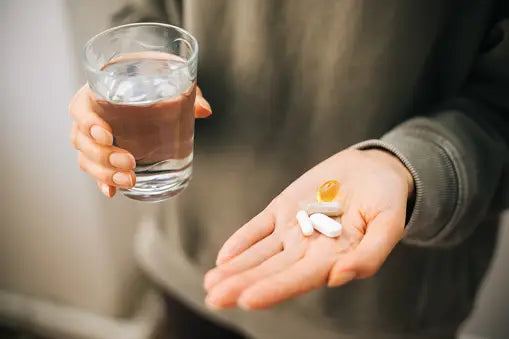

New Study Reports Muscle Building Effects of Tribulus
Table of Contents
New Study Reports Muscle Building Effects of Tribulus
by: Robbie Durand
It’s been a very long time since any research has been conducted on tribulus terrestris, but the newest research is exciting. Tribulus Terrestris is a supplement derived from the fenugreek plant. Tribulus Terristris is a vine plant that is native to temperate climates in areas of southern Europe, South Asia, Australia and Africa. It has a long history of uses, from promoting muscular development to supporting overall health. Tribulus has been suggested to support levels of testosterone while simultaneously supporting energy levels, recovery time, and muscle gain. Current research indicates that the steroidal saponins, particularly the dominant saponin protodioscin, are responsible for the pharmacological activities of tribulus.
Tribulus Reduces Muscle Damage
Several studies have also found that tribulus has synergistic effects with other nutrients to help support testosterone. Tribulus Terristris revealed many compounds including steroidal saponins, flavonoids, alkaloids, and amino acids. Previous studies demonstrated that Tribulus Terristris extracts improved exercise performance of rats with high-intensity endurance training and overload training by increasing plasma level of testosterone. New research suggests that tribulus may reduce muscle tissue damage. Boxers orally administered Tribulus terrestris extracts (1,250 mg/day) in exercise + Tribulus terrestris group. Before and at the end of the two trainings, muscle mass, anaerobic performance, and blood indicators were explored. At the end of the study, markers of muscle damage were reduced, and anaerobic performance was increased in the male boxers who took Tribulus terrestris extracts during high-intensity training. In the study, Tribulus terrestris extracts decreased the plasma level of IGFBP-3 in male fighters after the two trainings. IGFBP-3 binds to the anabolic hormone IGF-1 and decreases its bio-availability. These results suggested that the effects of Tribulus terrestris in trained male boxers may be mediated by reducing IGFBP-3, ultimately increasing the bioactivity of IGF-1, which increases anabolic activity.
1800 mg of Tribulus Boosts GH, Testosterone, and IGF-1
The newest study reported this month in the Central European Journal of Sport Sciences and Medicine reported that tribulus can increase anabolic hormones in middle-aged men. The aim of this study was to evaluate the effects of steroidal saponin supplementation on blood concentration of T, GH, and IGF-1. The research involved 14 men between the age of 45 and 60 years. The duration of the experiment was 12 weeks.
The subjects were randomly divided into two groups:
– An experimental and a control group.
The experimental group received tribulus terrestris steroidal saponins; for the first six weeks three capsules (900 mg) per day in split doses. Two capsules were ingested in the morning on an empty stomach (600 mg) and one at bedtime (300 mg). From weeks 6 to 12, six capsules (1,800 mg) were ingested per day in split doses. Four capsules in the morning on an empty stomach (1,200 mg) and two at bedtime (600 mg). The control group received a placebo in the form of gelatin capsules. During the 12 weeks of the experiment, all subjects participated in a physical activity program. The physical exercise program applied to all the participants included four training sessions per week, with two sessions directed at the improvement of anaerobic power (resistance exercise), while two consisted of aerobic endurance exercise.
At the end of the study, tribulus terrestris supplementation in a group of middle-aged men caused a statistically significant increase in resting T, GH, and IGF-1. In conjunction with the increased anabolic hormone profile, there was a significant decrease in total cholesterol, an increase in HDL-Cholesterol( good cholesterol), a decrease in LDL-Cholesterol (bad cholesterol) and a reduction in plasma triglycerides were observed.
Key Points: Tribulus seems to have potent anabolic effects for middle-aged men. The dose used in the study was 1800 mg divided into two doses, morning and night.
Wilk, Michał, et al. “Endocrine Responses to Physical Training and Tribulus Terrestris Supplememtation in Middle-Age Men.” Central European Journal of Sport Sciences and Medicine 13.1 (2016): 65-71.
Ma, Yiming, Zhicheng Guo, and Xiaohui Wang. “Tribulus Terrestris extracts alleviate muscle damage and promote anaerobic performance of trained male boxers and its mechanisms: Roles of androgen, IGF-1 and IGF binding protein-3.” Journal of Sport and Health Science (2015).
L. Yin, X.F. Wang, X.Z. Cao, X.H. Wang. The effects of Tribulus terrestris on the time of exhaustion in rats with high intensity training and its mechanism. J Shanghai Univ Sport, 37 (2013), pp. 73–77
X.H. Wang, J.Y. Sun, J. Qu, S.Z. You, W.J. Yang. Effects of Tribulus terrestris on exercise ability, endocrine and immune functions of over-trained rats J Shanghai Univ Sport, 34 (2010), pp. 46–49.
Ganzera M., Bedir E., Khan I.A. 2001. Determination of steroidal saponins in Tribulus terrestris by reversed-phase high-performance liquid chromatography and evaporative light scattering detection. J. Pharm. Sci. 90(11):1752-1758.

















